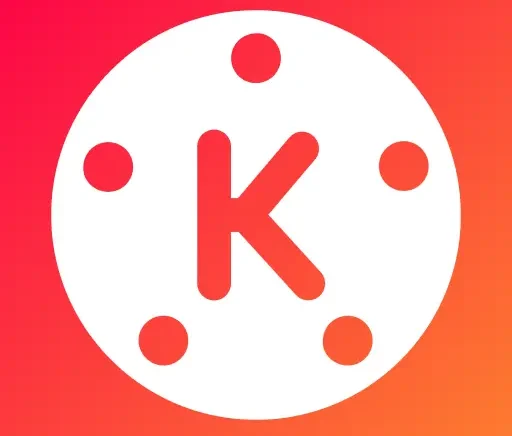
Color prediction games provide an exciting mix of probability, pattern recognition, and quick decision-making. For frequent players, balancing gameplay with daily responsibilities requires effective time management strategies. While these games offer entertainment and engagement, excessive time spent predicting outcomes can impact productivity and overall well-being. Developing structured routines, setting limitations, and implementing disciplined play sessions help players maintain a healthy balance between gaming and other aspects of life.
Understanding the Impact of Time Investment
Regular participation in color prediction games at Bdg login can lead to extended gaming sessions, often driven by the desire to improve accuracy or achieve winning streaks. While engagement is a natural aspect of gameplay, excessive time spent playing can interfere with responsibilities such as work, studies, and social interactions. Identifying how much time is invested in gameplay each day allows players to assess whether their gaming habits align with personal goals.
Monitoring time spent on predictions helps players establish realistic expectations for engagement. Recognizing when sessions extend beyond planned durations prevents unintentional overcommitment. Developing awareness of gaming patterns ensures responsible play without disrupting productivity.
Setting Boundaries and Defined Play Sessions
Frequent players benefit from setting clear boundaries for gameplay duration. Establishing dedicated play sessions with predetermined time limits ensures balance while maintaining engagement. Instead of allowing gaming to extend unpredictably, scheduling sessions at specific intervals enhances control over participation.
Time-blocking strategies reinforce structured gameplay habits. Allocating designated periods for predictions prevents excessive distractions while maintaining focused engagement. Players integrating color prediction into planned leisure activities ensure that gaming remains part of a well-balanced routine rather than a disruptive habit.
Prioritizing Responsibilities Before Gameplay
Ensuring that daily tasks are completed before engaging in predictions strengthens discipline in time management. Players who prioritize work, studies, and responsibilities before gaming reduce the risk of procrastination. Allocating gaming as a secondary activity reinforces structured habits, preventing excessive reliance on play sessions.
Organizing tasks based on importance ensures efficient scheduling. Players developing structured routines achieve better balance by distinguishing primary obligations from recreational activities. By maintaining responsibility-first engagement, frequent players optimize their time without sacrificing productivity.
Managing Breaks Between Sessions
Taking breaks between prediction rounds reduces fatigue while maintaining focus. Excessive consecutive gaming sessions may lead to decreased concentration, resulting in inaccurate predictions. Players recognizing the importance of pauses in gameplay ensure sustained engagement without mental exhaustion.
Scheduled breaks introduce refreshment opportunities, allowing players to reset cognitive focus before resuming predictions. Short intervals between rounds improve strategic assessment, ensuring optimal decision-making rather than repetitive engagement driven by impulsive responses.
Avoiding Emotional Decision-Making and Extended Sessions
Maintaining rational gameplay strategies prevents excessive emotional engagement that leads to prolonged sessions. Players experiencing consecutive losses may feel inclined to extend gaming durations in pursuit of recovery, often leading to impulsive decision-making. Developing structured play limits prevents excessive time spent reacting to streak outcomes.
Recognizing when sessions should conclude despite temporary losses strengthens time management discipline. Instead of attempting immediate recovery within extended gaming cycles, players benefit from planned stops, ensuring controlled gameplay without excessive involvement.
Tracking Gameplay Hours and Adjusting Playstyles
Regular players benefit from tracking gameplay hours, identifying whether engagement patterns align with structured schedules. Monitoring total play durations allows players to assess whether adjustments are necessary for achieving balance.
Refining predictive strategies based on tracked sessions optimizes gameplay efficiency. Instead of relying on extended play periods, players analyzing their previous engagement durations adjust prediction techniques for improved accuracy within structured timeframes.
Maintaining Social Interaction and Offline Activities
Frequent participation in color prediction games should not replace social engagement or offline activities. Players ensuring gaming remains a complementary experience rather than an exclusive priority maintain well-rounded lifestyles.
Incorporating social interactions, physical activities, and professional development into daily schedules prevents excessive reliance on gaming entertainment. Achieving balance between digital entertainment and offline experiences ensures optimal personal and professional well-being.
Future Developments in Time Management Tools for Gaming
Technological advancements will introduce AI-driven gaming assistants that track engagement durations and recommend optimal play schedules. Adaptive algorithms will assess individual gaming habits, providing structured recommendations for balanced participation.
Augmented reality integrations may redefine play sessions by introducing interactive time-management mechanisms that guide players in structured engagement durations. These innovations will enhance responsible gaming practices while reinforcing efficient prediction techniques.
Conclusion
Time management for frequent color prediction players requires structured play sessions, prioritized responsibilities, scheduled breaks, and balanced engagement strategies. Developing disciplined habits ensures gaming remains enjoyable without compromising productivity. As technology advances, intelligent gaming assistants and interactive scheduling tools will further optimize participation, ensuring that prediction-based entertainment aligns with structured time management practices.






